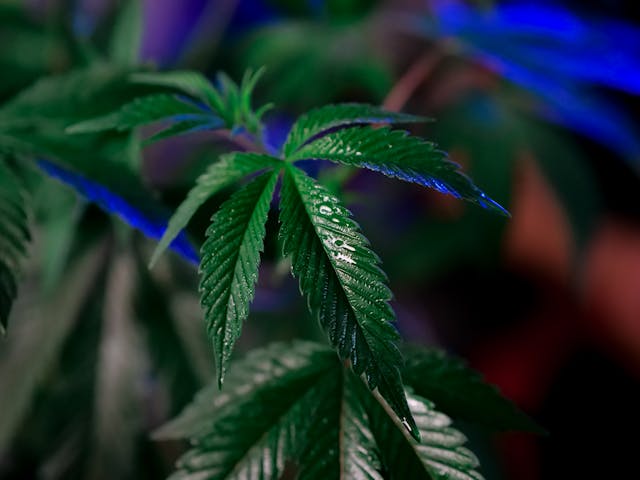As the popularity of cannabis continues to rise, so too does the importance of understanding its environmental impact.
Banana Kush, a hybrid strain known for its potent effects and distinct flavor profile, is cultivated worldwide to meet the growing demand from both medical and recreational users. However, the cultivation of cannabis, like any agricultural practice, can have significant environmental consequences.
In this article, we will explore the environmental impact of Banana Kush cultivation and discuss sustainable practices that growers can implement to minimize their ecological footprint.
Water Usage:
Water is a critical resource in cannabis cultivation, and excessive water usage can strain local water supplies and ecosystems. Traditional cultivation methods, such as outdoor farming and hydroponic systems, can be particularly water-intensive. To mitigate this impact, growers can implement water-efficient irrigation techniques, such as drip irrigation and rainwater harvesting, to minimize water waste and reduce their overall water footprint.
Additionally, selecting drought-tolerant strains like Banana Kush can help conserve water resources while still achieving high yields.
Energy Consumption:
Indoor cannabis cultivation requires significant energy inputs to power lighting, ventilation, and climate control systems. This energy consumption contributes to greenhouse gas emissions and strains local energy grids, especially in regions where cannabis cultivation is widespread. To minimize energy usage, growers can utilize energy-efficient lighting technologies, such as LEDs, and optimize their cultivation environments to reduce the need for artificial heating and cooling.
In addition to this, renewable energy sources, such as solar and wind power, can be integrated into cultivation facilities further to reduce carbon emissions and reliance on fossil fuels.
Soil Health:
Healthy soil is essential for sustainable cannabis cultivation, as it provides essential nutrients for plant growth and supports diverse microbial communities. However, intensive farming practices, such as monocropping and excessive pesticide use, can degrade soil quality over time, leading to erosion, nutrient depletion, and loss of biodiversity.
To promote soil health, growers can implement regenerative agricultural practices, such as cover cropping, crop rotation, and composting, to enhance soil fertility and structure. These practices not only benefit the environment but also improve crop resilience and yields in the long term.
Pesticide Use:
The use of pesticides in cannabis cultivation can have detrimental effects on environmental and human health, as well as disrupt local ecosystems. To minimize pesticide use, growers can adopt integrated pest management (IPM) strategies that prioritize prevention, monitoring, and non-toxic control methods, such as biological control agents and cultural practices.
Additionally, selecting pest-resistant strains like Banana Kush can reduce the need for chemical interventions and support a more sustainable approach to pest management.
Waste Management:
Cannabis cultivation generates a significant amount of waste, including plant material, packaging, and wastewater. Improper disposal of this waste can pollute soil, water, and air, posing risks to wildlife and human health. To address this issue, growers can implement waste reduction and recycling programs to minimize waste generation and divert organic waste from landfills.
Moreover, composting can be used to recycle organic plant material and enrich soil health, closing the nutrient loop and promoting a circular economy within the cultivation operation.
Biodiversity Conservation:
Cannabis cultivation has the potential to impact local biodiversity by displacing native plant species and disrupting natural habitats. To mitigate this impact, growers can implement practices that promote biodiversity conservation, such as preserving natural vegetation, creating wildlife corridors, and incorporating native plants into cultivation areas.
Furthermore, cultivating Banana Kush using organic and regenerative methods can support healthy ecosystems and enhance habitat diversity, providing refuge for native flora and fauna. By prioritizing biodiversity conservation, growers can contribute to the preservation of natural landscapes and the protection of endangered species, ensuring a harmonious coexistence between cannabis cultivation and the environment.
Conclusion:
In conclusion, the cultivation of Banana Kush and other cannabis strains has the potential to have significant environmental impacts, but with the implementation of sustainable practices, growers can minimize their ecological footprint and promote environmental stewardship. By prioritizing water efficiency, energy conservation, soil health, pesticide reduction, and waste management, growers can cultivate cannabis in a manner that is both environmentally responsible and economically viable. Explore how sustainable cultivation practices can minimize the environmental footprint of growing Banana Kush, complementing your understanding of its genetics, potency, and where to purchase.
As the cannabis industry continues to evolve, growers need to prioritize sustainability and work towards a more environmentally friendly approach to cultivation. Through collaboration and innovation, we can ensure that Banana Kush and other cannabis strains are cultivated in a way that protects the planet for future generations.




Comments are closed.